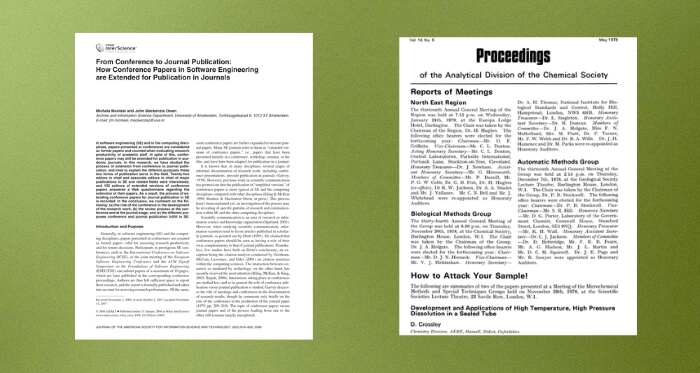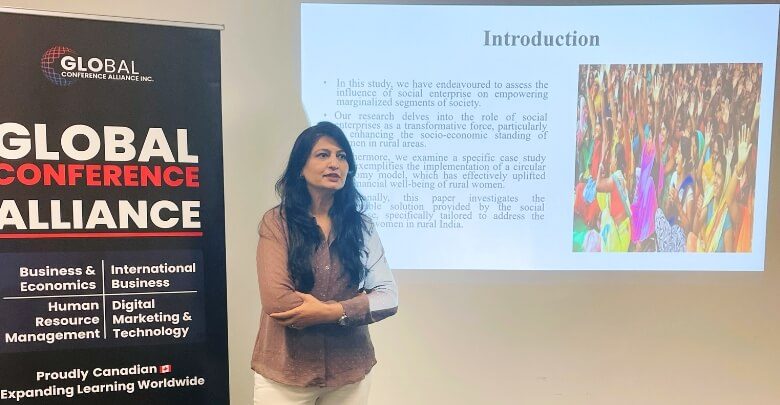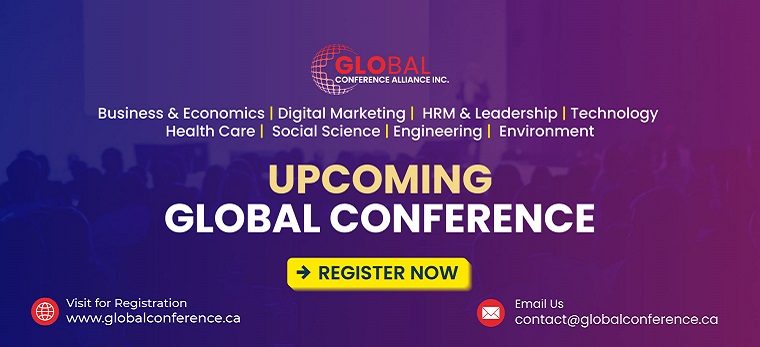Managing the world of academic conferences and research dissemination can be a daunting task, especially when faced with the choice between conference proceedings vs conference papers. These two terms may sound similar, but they represent distinct aspects of the academic landscape.
The primary distinction between conference proceedings and a conference paper is that conference proceedings consist of a collection of multiple research papers or abstracts from presenters at a specific academic conference, while a conference paper is a single research paper submitted by a researcher for presentation at the same conference.
In this blog, we’ll clarify the differences between conference proceedings and conference papers. We’ll discuss why they matter, how they’re structured, and their importance in academia. By the end, you’ll know which one suits your research best. Let’s dive in!
A Quick Summary of Conference Proceedings and Conference Paper
In the world of academia, two critical entities often shape the dissemination of research findings: Conference Proceedings and Conference Papers. These distinct components serve unique purposes, guiding the academic landscape with precision.

Conference papers are concise scholarly documents submitted by researchers to present their work at academic conferences, providing a snapshot of research findings, methodologies, and conclusions for fellow scholars to gain insights into the core of their study. Scholars worldwide gather to participate in academic conferences, engage in discussions, share expertise, and promote collaborations.
On the other hand, Conference Proceedings are comprehensive compilations that encompass a multitude of research papers and abstracts presented at a specific academic conference. They serve as invaluable repositories, capturing the collective knowledge and diverse insights shared during these scholarly gatherings, making them essential resources for researchers and libraries alike.
Understanding the roles and differences between these two entities is vital for making informed choices in research dissemination.
Conference Proceedings VS Conference Paper
In the vibrant world of academic research and scholarly conferences, it’s essential to distinguish between conference proceedings and conference papers. These two terms are often used conversely, yet they represent distinct aspects of the academic landscape.

1. Purpose:
- Conference Paper: These are individual scholarly documents crafted by researchers for presentation at academic conferences. They focus on presenting specific research findings and are typically concise.
- Conference Proceedings: Proceedings are essential for publication as they serve as comprehensive records of the conference’s content, gathering multiple research papers and abstracts from various presenters at a specific academic conference.
2. Content and Format:
- Conference Paper: These papers contain detailed information about a single research study, including methodology, results, and conclusions. They are often limited in length.
- Conference Proceedings: Proceedings contain a variety of research papers and abstracts, providing a broader overview of the conference’s topics. They can be considerably longer and cover diverse research areas.
3. Role and Usage:
- Conference Paper: Conference papers showcase a researcher’s individual work and are essential for sharing specific findings with a targeted audience.
- Conference Proceedings: Proceedings serve as references for researchers, libraries, and institutions. They capture the collective knowledge presented at a conference and offer a broader understanding of the research landscape in a particular field.
4. Selection and Inclusion:
- Conference Paper: Researchers submit conference papers based on their individual research projects. These papers undergo a peer-review process before being accepted for presentation.
- Conference Proceedings: Proceedings typically include all accepted conference papers and abstracts from presenters, showcasing a diverse range of research from the conference. Not all submitted papers may make it into the proceedings, but a significant portion usually does.
Conference papers focus on one research project, while conference proceedings gather many, serving as broad academic references. Knowing when to use each helps in sharing research effectively.
Pros and Cons of Conference Proceedings
Conference proceedings are valuable resources in the academic world, but they come with their own set of advantages and drawbacks. Here’s a concise breakdown of their pros and cons:
Pros of Conference Proceedings
- Comprehensive Records: Capture a wide range of research from a conference, offering a holistic view.
- Resource Diversity: Provide a variety of research topics and insights for academic exploration.
- Long-Term Reference: Serve as enduring references for researchers, libraries, and institutions.
- Collaborative Insights: Showcase collective knowledge and diverse perspectives from multiple contributors.
- Research Landscape: Offer a broader understanding of a specific field’s current research trends.
- Citation Impact: Enhance visibility and recognition of research by being part of a published proceeding.
- Historical Insight: Act as historical records, tracking the evolution of research in a particular domain.
Cons of Conference Proceedings
- Volume Challenges: Large and diverse content can be overwhelming for readers.
- Quality Variation: Not all papers meet the same academic standards, leading to varying quality.
- Limited Accessibility: Some proceedings may not be easily accessible, impacting research dissemination.
- Content Overlap: Papers in proceedings may cover similar ground, leading to redundancy.
- Publication Delay: Proceedings may be published after the conference, delaying research dissemination.
Pros and Cons of Conference Paper
Conference papers are like snapshots of research, capturing the essence of a single study. They have their perks and downsides, which we’ll explore below.

Pros of Conference Paper
- Focused Presentation: Allows in-depth discussion of a single research study, ensuring a comprehensive understanding.
- Timely Dissemination: Provides a platform for sharing fresh findings and innovative research quickly.
- Scholarly Recognition: Enhances individual recognition and credibility within the academic community.
- Networking: Facilitates networking opportunities, promoting collaborations with peers and experts in the field.
- Targeted Audience: Reaches a specific audience interested in the research topic, leading to meaningful feedback.
- Publication: Often considered a preliminary step towards journal publication, increasing research visibility.
- Accessibility: Easily accessible for readers due to its standalone nature, simplifying research access.
Cons of Conference Paper
- Limited Scope: Restricts the depth of research exploration due to length constraints.
- Competitive Acceptance: Faces stiff competition during the conference paper selection process.
- Less Comprehensive: Offers a narrow perspective compared to the collective knowledge found in proceedings.
- Research Costs: This may involve conference registration fees and travel expenses.
- Limited Exposure: Reaches a smaller audience compared to proceedings, potentially limiting impact.
Bottom Line
In the ever-evolving landscape of academic research, the choices we make regarding “conference proceedings vs conference paper” can significantly impact the way knowledge is shared and received. These two facets of research dissemination, while distinct, each hold their own merits.
Conference proceedings are like big collections of academic knowledge from conferences. They give us a broad view of different research topics and can be used for a long time. But sometimes, they can be hard to find and read because there are so many.
On the other hand, conference papers are like detailed reports about one research project. They help researchers get recognized and share their work quickly. But they can’t cover everything, and it’s tough to get them accepted at conferences because there’s a lot of competition.
So, choosing between conference proceedings and conference papers depends on what you need and who you want to reach with your research. Understanding the differences helps you make the right decision for sharing your work effectively.





